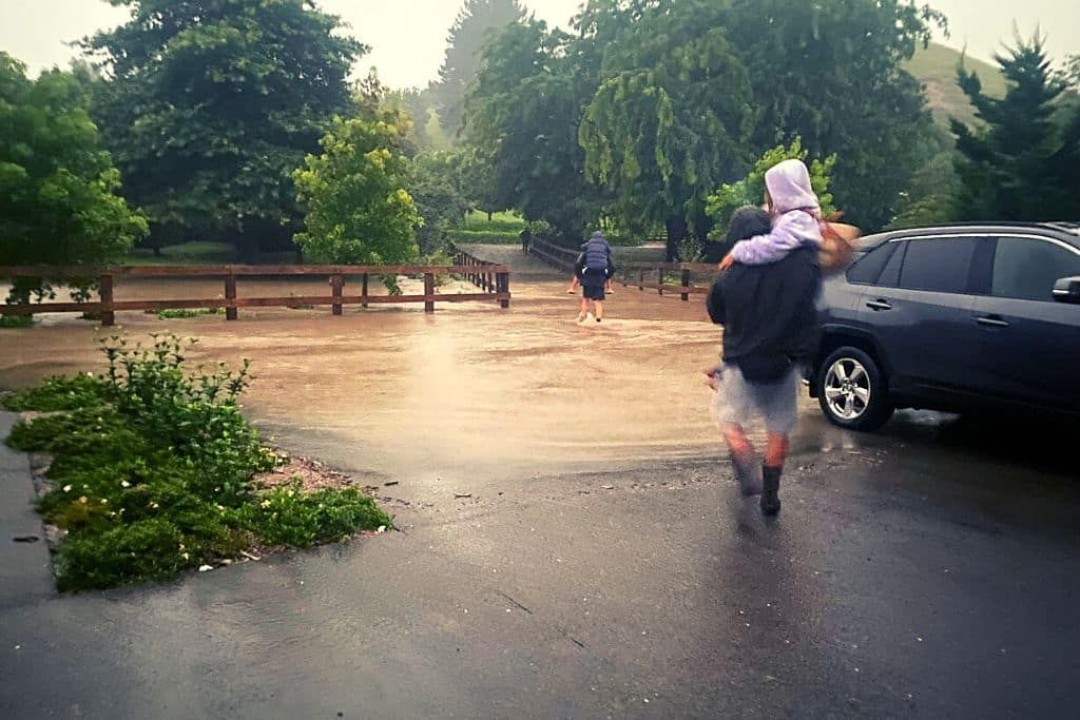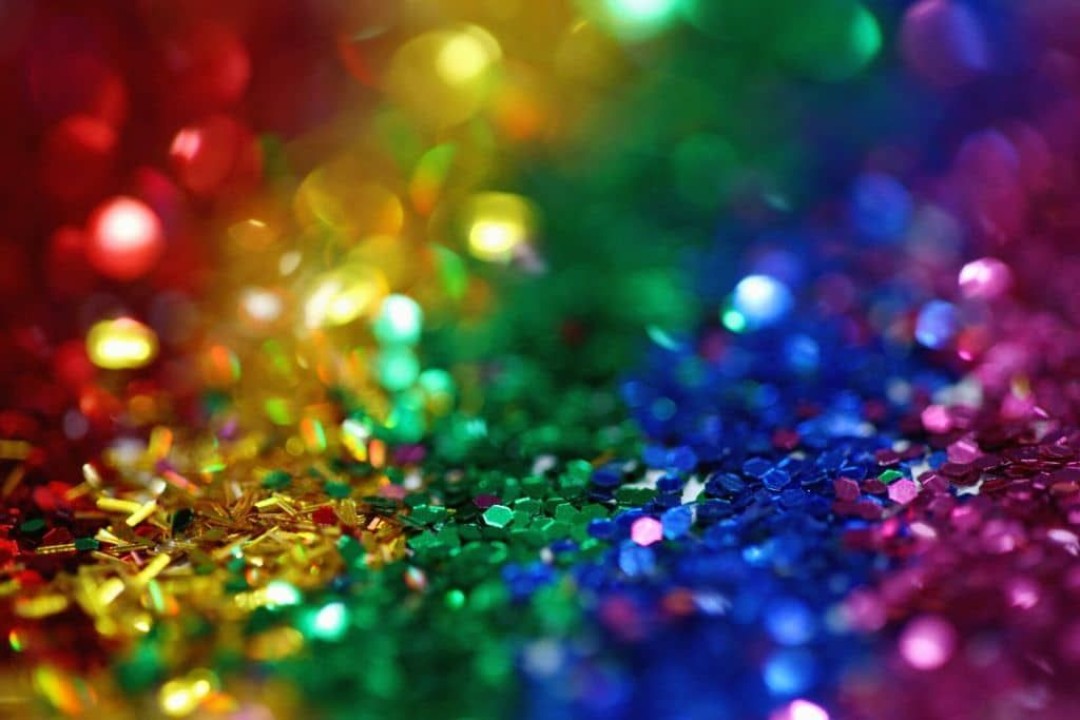Sober Story: Louise
February 28th, 2019 Interviews 14 comments

This week’s Sober Story comes from Louise, a 47-year-old living in Auckland.
==========
Mrs D: How long have you been in recovery?
Louise: My sobriety date is February 8, 2015 – I recently celebrated 4 years in recovery and couldn’t keep the smile off my face for weeks. It was the longest continual period I have been sober.
Mrs D: Congrats! What can you tell us about the last months/years of your drinking before you gave up?
Louise: My story isn’t unique – I drank like a drunk from my first drink and I am a walking, talking cliché of an alcoholic. I blacked out, I threw up, I was inappropriate and I made dumb choices when I was drinking. I loved it. I hated it. I thought I could stop if I wanted to. Most of the time, I didn’t want to stop. Alcohol dealt with everything sad, bad, mad and glad in my life. It was my lover and best friend but it was like being in an abusive relationship. It wasn’t on my side although it convinced me it was. The words terror, bewilderment, frustration and despair are used in my programme of recovery to describe the horrors of alcoholism, and I relate to them completely.
Mrs D: Can you describe your last drinking days to us?
Louise: My last days of drinking followed this pattern: wake up at 4am, parched, feeling sick, revolting and full of remorse. I couldn’t sleep and couldn’t bear to face another day of a hangover. My promises of never touching another drop – that this would be the day when I would finally have the strength to stop drinking – rang hollow.
Mrs D: What about the last ever night?
Louise: Four bottles of wine in one sitting, talking a whole pile of rubbish to my partner, which disgusted him (I thought I was being fabulous and clever!) and an eerie experience of looking at myself from outside my body rattled me. The next day I felt the usual guilt and shame, but this time, I knew I was going to die if I didn’t stop. I wanted my life back, whatever that looked like, without alcohol. I was more desperate than I’d ever been, which in hindsight was a good thing.
Mrs D: It’s crazy how we can want to stop so badly but keep on going…
Louise: I just couldn’t seem to get past the powerful and ferocious voice in my head that would kick in from about lunch time and rage all afternoon. ‘You feel like crap, a drink will help… you can always stop tomorrow, or next week … lighten up, you’re not hurting anyone…’. A smaller, weaker voice would be there too, reminding me that my life was completely controlled by alcohol, that nothing good ever happened while I was drinking, that I was killing myself and I was fooling no one, let alone not hurting anyone. All I had to do was to look at the hurt face of my daughter, to feel her confusion and disgust, to know that wasn’t true.
Mrs D: I know that reality of having two voices in your head giving mixed messages…
Louise: My ‘small’ voice became stronger the more desperate I became, thanks in part to 12 years of being in and out of recovery. A belly full of booze and a head full of recovery programme slogans is an exquisite kind of torture that was either going to drive me to suicide or get me back into recovery for good. A valued friend and then my partner expressed their concern over my drinking and for once, I was willing to listen. It knew was my time to stay stopped, but I needed a lot of help to do it.
Mrs D: Any specific help?
Louise: My doctor was happy to prescribe me medicine (Antabuse) to help me stop taking the first drink – one sip of alcohol can cause severe illness when you’re taking it and for a couple of weeks afterwards. This was the only way I could stay away from the first drink. I sweated through a few sleepless nights and withdrawal symptoms like ‘electric fleas’, which felt like my skin had been turned inside out. I returned to recovery meetings and started seeing a drug and alcohol counsellor twice a week. Recovery and staying stopped was my daily ‘job’ for about six months. If I wasn’t at a meeting, I was reading, watching and listening to recovery material. I needed to fill my head and life up with good, positive stuff to stay on the right track.
Mrs D: How was it for you in the early days? What was most difficult?
Louise: I felt awful for the first six months. Physically, I felt nauseous (my liver was fine, the doctors told me, so I don’t know what that was about), and I was exhausted and weak. I was emotionally fragile and battling big time with depression. I had a lot of medical help and wonderful recovery folk helping me to sort out my health and my life, and to separate my alcoholism from other conditions. Decades of heavy drinking had made my body, mind and soul weak and it a took a lot of love, sleep, patience, discipline and rigorous honesty to get through each day, and recover my life one step at a time.
Mrs D: What reaction did you get from family & friends when you started getting sober?
Louise: Relief, joy and pride when it was apparent I was managing to stay stopped.
Mrs D: Have you ever experienced a relapse?
Louise: I was a chronic relapser for 12 years. The longest I had previously stayed sober for was 18 months, and for half of that time, I was pregnant. (Luckily, I was unable to tolerate drinking when I was pregnant.) There were other periods of six months and even 11 months free from alcohol, but ultimately I wanted to drink more than I wanted sobriety. I had to completely surrender to abandon the illusion that I could get away with being a drinking alcoholic.
Mrs D: How long did it take for things to start to calm down for you emotionally & physically?
Louise: The first six months were the worst, but my physical and mental health took a few years to sort out. Menopause didn’t help and managing my depression – which I now realise I used to medicate with alcohol – was a real challenge. There were many dark moments and I often felt it was unfair that I still felt so awful when I had finally put down the bottle. Wasn’t this supposed to be the fun and happy part? Where was that bloody pink cloud everyone kept talking about? But I can honestly say now that I never came close to picking up another drink, even when I was in the depths of self-pity. Now that my health has improved, I am deliriously happy to be sober.
Mrs D: How hard was it getting used to socialising sober?
Louise: I hardly socialised for the first six months or so. I only went to events that I really had to attend. I remember one disastrous occasion when someone tried to give me a glass of wine after only a few weeks of sobriety – I had a panic attack, burst into tears and bolted. Very dramatic! Another time I sat on the back stairs at a party and just bawled my eyes out, hating every minute that I had to be there. About a year or so down the track I felt more comfortable being around drinkers, as long as I could exit the scene as soon as I felt nervous, or when people started to get tipsy or trashed. I then progressed to being okay with people having a few wines in my home. Funnily enough, I have recently pulled back again from socialising around people drinking alcohol: I am sick of the effort of pretending I am okay around it. I hate alcohol and what it’s taken from me and my family. I come from a long line of people who have died one way or another from alcoholism and I just don’t want to be around it anymore. I used to bend over backwards to accommodate other people who wanted to drink and to reassure them that I was ‘cool’ with it. I mean, who needs a reformed pisshead telling other people how to live their lives? I’m still not interested in ramming my beliefs down anyone’s throat but now, I just choose to stay away from it. I really hate alcohol and love being sober too much to waste one more minute of my life on that substance. It’s just bullshit and I don’t want anything to do with it.
Mrs D: Hear hear. Was there anything surprising that you learned about yourself when you stoppeddrinking?
Louise: I’m shy. I’m private. I value deep and authentic connections with others. I’m no longer the life of the party (I think I was just the loud, trashed one before).
Mrs D: How did your life change?
Louise: It got very, very quiet. I had to look after myself and I had no idea how to, at the beginning. Alcohol was my answer to everything before – the way I soothed, calmed and rewarded myself. I had to figure out other ways to do those things without booze, and without hurting myself anymore. I also gave up smoking a few months after stopping drinking, because it was something I discovered I only wanted to do when I had a wine in my hand. The desire to smoke cigarettes naturally fell away when I got sober. Socially, I lost a group of ‘friends’. I have literally never seen my drinking buddies since I got sober (funny that) and another group of mates, who were used to me being a hot mess of trying to give up booze and failing all the time. They didn’t know what to do with me when I started to get well. I guess I was their token ‘problem’ friend and didn’t fit the bill anymore when I became stronger. My new friends were sober and ‘got’ me. The process of fitting in to new social circles has been difficult, painful and awkward, but a few years down the track, I wouldn’t change a thing and finally feel at peace with who the few authentic people in my life.
Mrs D: That’s wonderful! Can you pinpoint any main benefits that have emerged since you got sober?
Louise: Living life. Health. Peace in my head. Finally starting to reach my potential. Daring to dream again.
Mrs D: Would you do anything differently given the chance to go through the process again?
Louise: I wouldn’t have put so much pressure on myself to do everything perfectly and quickly. My expectations were that I would feel magically better and life would be a bed of roses. It wasn’t. But the benefits of having to fight for every bit of my recovery now mean that I cherish it beyond words and protect it ferociously.
Mrs D: What advice or tips would you have for those who are just starting on this journey?
Louise: Surround yourself with love and support and stay away from negative people and those who don’t understand the changes you are making. Protect yourself from the outside world for at least a few months. Treat recovery like a job – do something every single day to stay sober, whether it be a meeting, reading or watching recovery material, talking to other happy people who are living sober, and most of all, stay quiet and learn to love yourself. Treat yourself like a porcelain doll in the early days, like a fragile little flower that needs nurturing before blossoming. Stay out of your head and get into action – no one’s going to do this for you. And above all, don’t try and ‘fix’ everything at once: I’ve seen so many people try to give up smoking and lose weight and get a new relationship and fix everything they don’t like about themselves at the same time as stopping drinking. It’s a recipe for disaster and many fall off the wagon from the pressure of trying to be perfect. One step at a time, one day a time, is the way to go. Recovery takes time and letting life unfold on life’s terms is where authentic, lasting serenity comes from, in my experience.
Mrs D: Anything else you’d like to share?
Louise: I’ve learnt that alcoholism is a cunning, baffling and powerful disease and needs to be respected. After years of slipping and sliding in and out of recovery, complacency is something I actively work to prevent. Through my programme of recovery, I have also learnt the hard way that my recovery is contingent on my spiritual and mental fitness, so I make sure I work on it every day. The result is peace, health and sobriety and is priceless: it’s life itself.
Continue reading
Staying Sober Through A Crisis
This guest post comes from Amy, a sober hero who lost her home in the terrible floods caused by Cyclone Gabrielle in February 2023.
May 28, 2023 – 10 comments
Sober is a sparkly word
Someone was trying to tell me the other day that ‘sober’ is a negative word with staid and boring connotations.
November 15, 2019 – 18 comments
Things WE have discovered in sobriety (our members speak)
After publishing my list of 13 things I have discovered in sobriety, I asked members of our community here at Living Sober to submit some of the things they themselves have discovered or realised since they quit drinking.
November 10, 2021 – 16 comments
Ask An Expert: Jennifer (Peer Support Worker)
Today’s Ask An Expert is Jennifer, a peer support worker for the Salvation Army – part of the Alcohol and Other Drug Treatment Court treatment team.
January 9, 2018 – 3 comments


